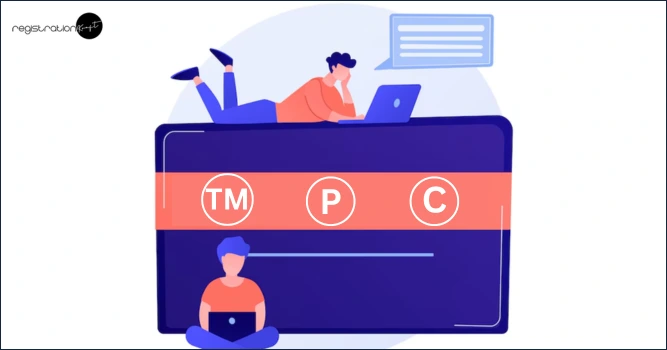Clarify the terms Trademark, Patent, and Copyright

Starting a business in India in 2025 is an exciting journey, but it’s also crucial to protect your ideas, brand, and creative works from the get-go. Three key legal tools—trademarks, patents, and copyrights—are vital for safeguarding your intellectual property. Let’s clarify each term and see how they help your business thrive.
What is a Trademark?
Your trademark is your business’s signature—it’s how customers remember you and choose you over others. In India, trademarks can take many forms: a catchy phrase, a memorable logo, or even a unique package design. Think of how instantly you recognize the Tata logo or Amul’s famous tagline, “The Taste of India.” That’s the power of a good trademark.
In India, trademarks are legally covered by the Trademarks Act, 1999, and the Trade Marks Rules, 2017. These rules make sure no one else uses a name or logo that looks like yours and might confuse your customers. Even without registration, you still have some protection under common law, but getting your trademark officially registered gives you more power if someone tries to copy it.
Why does it matter for your business?
A well-protected trademark builds trust with your customers and stops competitors from copying your brand’s identity. It’s your first line of defense in a crowded market. Selecting the correct trademark class is essential; otherwise, your registration may not cover your intended goods or services.Checkout the List of Trademark Classes in India.
What is Patent ?
A patent is an intellectual property right conferred by the government to inventors for novel inventions, encompassing products, devices, processes, or chemical compositions. This right ensures exclusivity for a standard term of 20 years in India, prohibiting others from manufacturing, utilizing, or selling the patented invention without permission.
Under Indian patent law, the following are eligible for patent protection:
- Novel products, such as machinery, tools, or industrial goods.
- Innovative processes or methods that deliver a technical result.
- New chemical compounds and pharmaceutical formulations.
- Biotechnological inventions, including those related to genetic engineering.
Excluded from patentability are scientific theories, naturally occurring substances, mathematical models, and most computer software.
Why does it matter for your business?
Patents encourage innovation by rewarding inventors with a temporary monopoly. If your business is based on a unique invention, a patent ensures no one else can copy or profit from your idea without your permission.
What is Copyright ?
Copyright is a legal safeguard for your original creations, such as literary compositions, musical pieces, artistic designs, films, audio tracks, and software. It grants you exclusive rights to reproduce, publish, and display your work for a specific term—typically 60 years posthumously in India.
The Copyright Act, 1957 governs this protection and includes:
- Literary works (excluding software)
- Musical compositions
- Artistic creations
- Cinematograph films
- Sound recordings
- Computer software, compilations, and data tables
Although registration is not mandatory to obtain copyright in India, it serves as solid proof of ownership during legal disputes.
Relevance to businesses
If your enterprise relies on original work—such as software development, filmmaking, writing, or design—copyright ensures your intellectual property isn’t exploited without authorization. It’s a vital asset for safeguarding your brand and work.
How Do Trademarks, Patents, and Copyrights Differ?
If you’re starting a business in India, understanding intellectual property (IP) is crucial. Here’s a quick breakdown:
| Type | What It Protects | Example in Business | Duration (India) |
| Trademark | Brand names, logos, slogans | Business logo or tagline | 10 years (renewable) |
| Patent | New inventions, unique processes | Innovative product design | 20 years from date of filing |
| Copyright | Creative works like writing, music, films | Website content or marketing material | 60 years after the creator’s death |
Why Does This Matter?
In 2025, building a business without securing your intellectual property is risky. These legal tools protect your brand, creations, and innovations from misuse.
Here’s how to start:
- Trademark your name/logo to establish brand recognition.
- Patent your inventions to stop others from copying your ideas.
- Copyright your content to retain full control over your creative work.
Secure your assets now—because your business deserves long-term protection.
Categories: Business
Tags:





